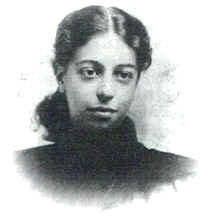|

 hough
most of the black writers of the period were active
as poets and writers of fiction, others wrote scripts
for the theater groups that formed in Boston during
the 1920s. Most of those scripts have not survived,
but some extant samples provide a glimpse of their
concerns. hough
most of the black writers of the period were active
as poets and writers of fiction, others wrote scripts
for the theater groups that formed in Boston during
the 1920s. Most of those scripts have not survived,
but some extant samples provide a glimpse of their
concerns.
Joseph Mitchell was a practicing attorney
in Boston who joined the little theater movement
started by Maude Cuney Hare and Ralf Coleman
in the 1920s. His plays—“Son Boy”
and “Help Wanted” reflect the state
of race relations in his home state of Alabama as
well as the struggle to succeed in Boston.
Mary Burrill, originally from Washington,
D.C., is the author of two highly political plays,
both advocating a radical stance on gender issues.
She advocated for women’s access to birth
control methods, particularly rural women, and called
for an end to the lynching plague that was sweeping
the South. Burrill spent very little time in Boston,
having come primarily to study at Emerson College.
Angelina Weld Grimke, daughter of the prominent
attorney, activist, and ambassador to the Dominican
Republic, Archibald Grimke, was one of the first
black women, playwrights in the United States.
Her three-act play Rachel, produced in 1916 and
published in 1921, delivered a strong treatment
of lynching, seen through its devastating psychological
consequences for one young woman
|


